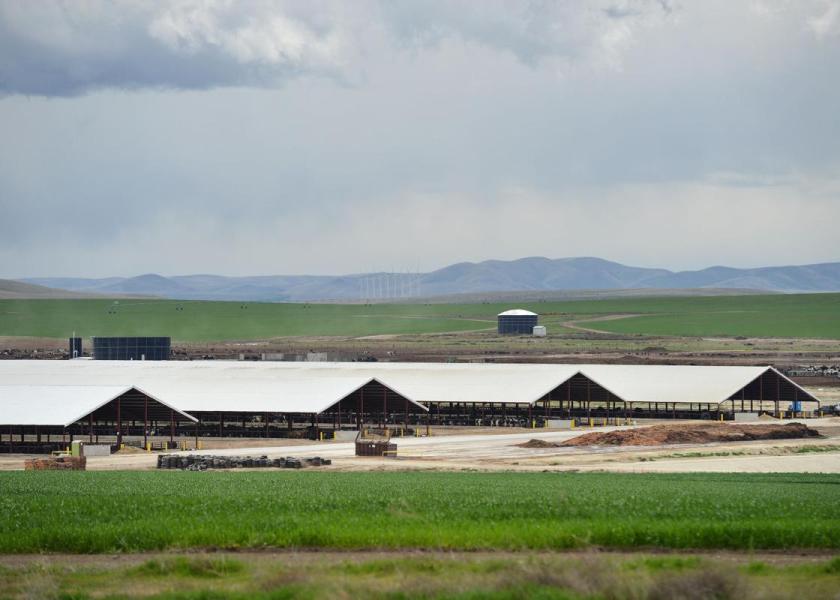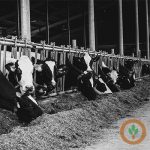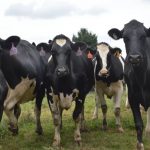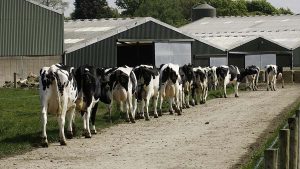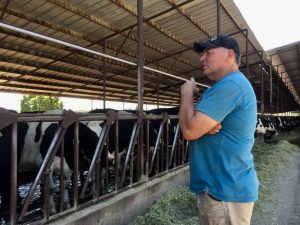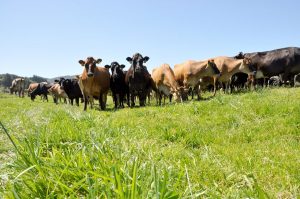
Situated near Boardman, Oregon, a once infamous ‘mega-dairy’ site has embarked on a new journey, signaling a shift away from its controversial past. Known for its significant environmental violations and hefty fines, the site is now undergoing a transformation that makes its return to dairy farming highly unlikely. The current owner, Canyon Farms, is in the process of decommissioning the site as a Confined Animal Feeding Operation (CAFO).
The Troubled Past of Lost Valley Farm
Back in 2017, Lost Valley Farm received a CAFO permit from the Oregon Department of Agriculture (ODA) and the Department of Environmental Quality (DEQ) to house 30,000 dairy cattle. The farm’s problems began almost immediately. Owner Greg te Velde jumped the gun by housing cows before the necessary facilities were completed and without finalizing a waste management plan.
By the following year, Lost Valley Farm was facing severe repercussions for its mismanagement. The farm accumulated more than 200 violations, resulting in the ODA improving $187,000 in fines for issues such as overflowing manure lagoons and leaky waste storage systems. Unable to withstand the regulatory and financial pressure, Lost Valley eventually filed for bankruptcy.
Changing Hands and Continued Challenges
After its bankruptcy, the farm changed ownership several times. When Easterday Dairy took over, the site continued to struggle with regulatory compliance, ultimately leading to its closure in 2019, and the site was left without any cattle.
In 2023, Canyon Farms, managed by Fall Line Capital – a California-based venture capital firm – acquired the site. This new ownership brought a different approach, taking significant steps to address past violations and move closer to a fresh start. In April of the current year, Canyon Farms submitted an application to decommission the site as a CAFO. As the decommissioning process continues, the future of the former Lost Valley Farm site remains open-ended.
Oregon’s Commitment to CAFO Compliance
It’s important to note that the actions of one farm should not tarnish the reputation of others. Tami Kerr, executive director of the Oregon Dairy Farmers Association (ODFA), emphasizes this point, highlighting Oregon’s progressive approach to CAFO compliance.
“Oregon was one of the first states to adopt the CAFO program over thirty years ago as a progressive measure to protect water quality,” she explains
“The Oregon CAFO program maintains some of the highest compliance rates in the nation and is something we are incredibly proud of.
Oregon’s dairy farmers adhere strictly to environmental regulations and prioritize sustainable farming practices. These farmers are committed to protecting the environment and the health of their communities.”
A Future Under Scrutiny
Any future developments at the former Lost Valley Farm site will unfold under increased environmental awareness and community scrutiny. Despite the challenges faced by Lost Valley Farm, Kerr notes that Oregon dairy farms significantly contribute to the local economy, providing jobs and supporting rural communities.
“Our farmers are integral members of these communities, deeply invested in their well-being and committed to sustainable farming practices,” she concludes.
As Canyon Farms navigates the process of decommissioning the site, the story of this former ‘mega-dairy’ serves as a reminder of the importance of regulatory compliance and sustainable farming practices. Whether the future holds the promise of renewal or reinvention, one thing is certain: the past will weigh heavily in shaping the road ahead.
You can now read the most important #news on #eDairyNews #Whatsapp channels!!!
🇺🇸 eDairy News INGLÊS: https://whatsapp.com/channel/0029VaKsjzGDTkJyIN6hcP1K
